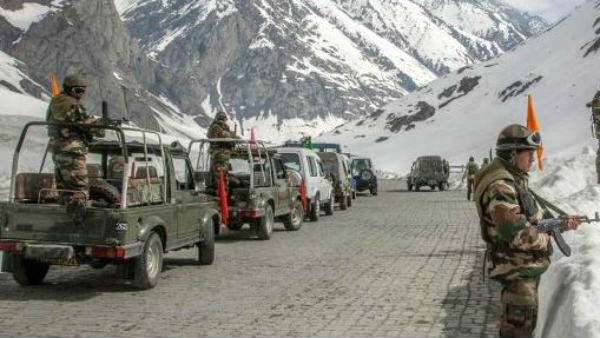
A year on since talks, but Indo-China tensions remain high at Ladakh theatre
New Delhi, June 06: It has been a year since India and China began negotiations to dial down the tensions along the Line of Actual Control, but people familiar with the developments say that there has been limited success.There have been 11 rounds of military commander level talks since the past year. The first round of talks were held on June 6 2020.

While both sides are deployed in full force, the only significant development that the two sides managed to achieve was the disengagement of front line troops in the Pangong Tso. This development took place in February and since then there has not been any progress.
Both armies have around 50,000 troops each in the Ladakh theatre. There has been no thinning down of forces even as the two sides have engaged both on the military as well as diplomatic side.
In the backdrop of the tensions, Russian President, Vladimir Putin said that Prime Minister Narendra Modi and Chinese President Xi Jinping are capable of solving Indo-Sino issues.

Speaking to PTI, Putin said that the PM Modi and President Xi are responsible leader and are capable of solving Indo-Sino ties. He also said that no extra regional power should interfere with the bilateral issues of India and China.
The statement comes in the wake of the Ministry of External Affairs saying that the disengagement process along the Line of Actual Control remaining incomplete.
Responding to a question on China increasing its military deployment and raising new infrastructure at friction points along LAC, Ministry of External Affairs (MEA) spokesperson Arindam Bagchi said, "The process of disengagement remains unfinished." India and China have agreed that in the interim they would maintain stability on the ground and avoid any new incidents, he said.
"It is our expectation, therefore, that neither side should do anything that is not in keeping with these understandings."
"An early completion of disengagement in the remaining areas could lead to de-escalation of forces in eastern Ladakh, which would hopefully lead to full restoration of peace and tranquillity in the border areas and enable overall progress in the bilateral relationship," Bagchi said.
India and China reached a five-point agreement to resolve the eastern Ladakh border standoff during talks between External Affairs Minister S Jaishankar and his Chinese counterpart Wang Yi at a meeting in Moscow on September 10 on the sidelines of a Shanghai Cooperation Organisation (SCO) conclave.
The pact included measures like quick disengagement of troops, avoiding action that could escalate tensions, adherence to all agreements and protocols on border management and steps to restore peace along the LAC.
India and China are locked in a military standoff at multiple friction points in eastern Ladakh since early May last year but they have completed withdrawal of troops and weapons from the North and South banks of Pangong lake in February following a series of military and diplomatic talks.
The two sides are now engaged in talks to extend the disengagement process to the remaining friction points.
There was no visible forward movement in disengagement of troops in the remaining friction points as the Chinese side did not show flexibility in their approach on it at the 11th round of military talks with the Indian Army on April 9.
There were reports of China further strengthening its positions in some of the friction points.


 Click it and Unblock the Notifications
Click it and Unblock the Notifications


































